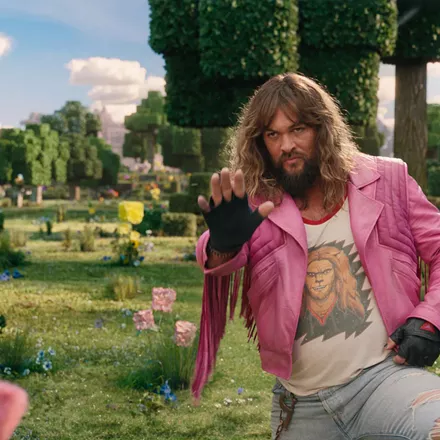
As much joy as art can give us, there are times when it hurts to care about it. One of those times is pretty much any time I'm reminded how little a whole lot of other people care about it.
Such a sensation washed over me as I followed the opening-weekend box-office results for Kubo and the Two Strings, one of my favorite films of 2016. It came in at a soft $12.5 million for its first three days, following on the heels of less-than-spectacular debuts for a pair of the year's other charming, distinctive family-oriented films: Steven Spielberg's The BFG and Disney's Pete's Dragon remake. In a year when one of the surest things at the box office has been kids' films—from Zootopia to The Jungle Book to Finding Dory to The Secret Life of Pets—it was a hard thing to swallow. America's parents were letting me down.
On Aug. 21, wallowing in my disappointment, I tweeted the following: "Opening weekends: SECRET LIFE OF PETS: $104M ANGRY BIRDS: $38.1M PETE'S DRAGON $21.5M KUBO $12.5M Epic parental fails." One response took issue with my assessment: "Why? Because people like things you don't?"
That might seem like a fair question, except that it really has nothing to do with the statistics as I presented them. As I said to that respondent, opening weekend box office numbers have nothing to do with what people "like." I was careful to use opening box office as my metric, and not cumulative totals, because opening weekends are all about marketing. Without the likelihood of positive word-of-mouth or repeat viewing driving the numbers, those first few days depend on people responding to a movie's media campaign. Or, in the case of kid-oriented films, they depend on parents responding to their kids responding to that media campaign.
It shouldn't need to be said, but I'm going to say it anyway: You're not a bad parent if you took your kids to see The Secret Life of Pets. You're not a bad parent if you didn't take your kids to see Kubo and the Two Strings. You're not a bad parent—or person—if you liked The Secret Life of Pets more than Kubo and the Two Strings, although I personally might have reason to question your judgment. This isn't about that. At all.
What it's about is a certainly laziness that takes hold where children's entertainment is concerned. Because while parents might be extremely concerned about whether movies and TV shows are appropriate for their kids, they often don't seem to care all that much about whether they're good.
If that seems like I'm contradicting myself, let me backtrack. A parent might end up thinking The Secret Life of Pets is a better movie than Kubo and the Two Strings, but that parent isn't buying opening weekend tickets for their family because they think it's good. That's a decision inspired by the commercials they saw, the teaser trailer that was on the DVD of Minions, or the Happy Meal toys at McDonald's. It looked cute. Or their kids thought it looked cute, and pestered Mom for weeks about when it was going to come out. The decision to buy tickets for that movie wasn't an attempt to show their kids the best movies they possibly could. It was something to do to pass the time, and as long as the movie didn't end up being Sausage Party, mission accomplished.
This is where parents are failing their kids, and they're doing it over and over again. They're taking kids to what those kids want to see, or what's easy to get them to see, rather than making the effort to find the best, most enriching stories for them. They're doing the equivalent of letting their kids eat nothing but sugared cereals, because that's what the kids ask for when they go to the grocery store. It's a parent's job not to give kids what they want, but to give them what they need. Whatever job parents might be doing to see to their kids nutritional well-being, they're doing a piss-poor job of seeing to their aesthetic well-being. Animated junk food doesn't seem worth worrying about.
If this appears to be a thoroughly self-serving suggestion that parents should give more weight to critics' reviews ... OK, maybe that's partly true. But why didn't parents pay attention to the overwhelming critical consensus that Kubo and Pete's Dragon were great kid-appropriate entertainment? Had moms already used up their summer disposable entertainment dollars on the other stuff? Is it just further evidence that critics' voices are irrelevant? Or were the voices of critics simply drowned out by the voices of studio marketing?
Parents are understandably defensive about being told what they're doing wrong—and someone is always telling parents what they're doing wrong. And maybe, considering how I survived a childhood of Scooby-Doo on TV, I should ease back on suggesting that the sky is falling. But it's always worth asking, "How can I do better?" Maybe part of that "better" is waiting to show kids stories that speak to them deeply, rather than those that speak to them loudly.





